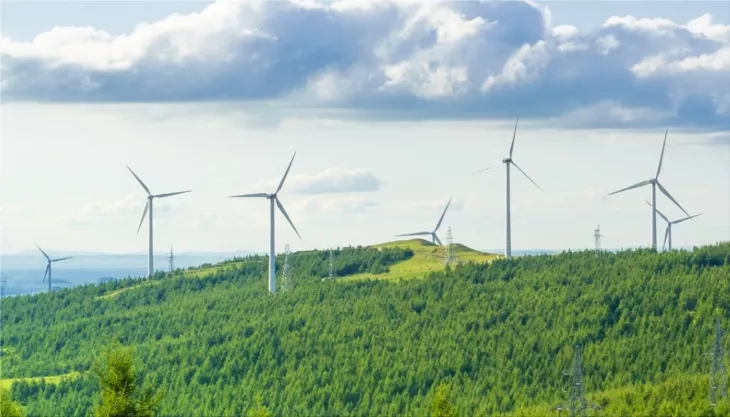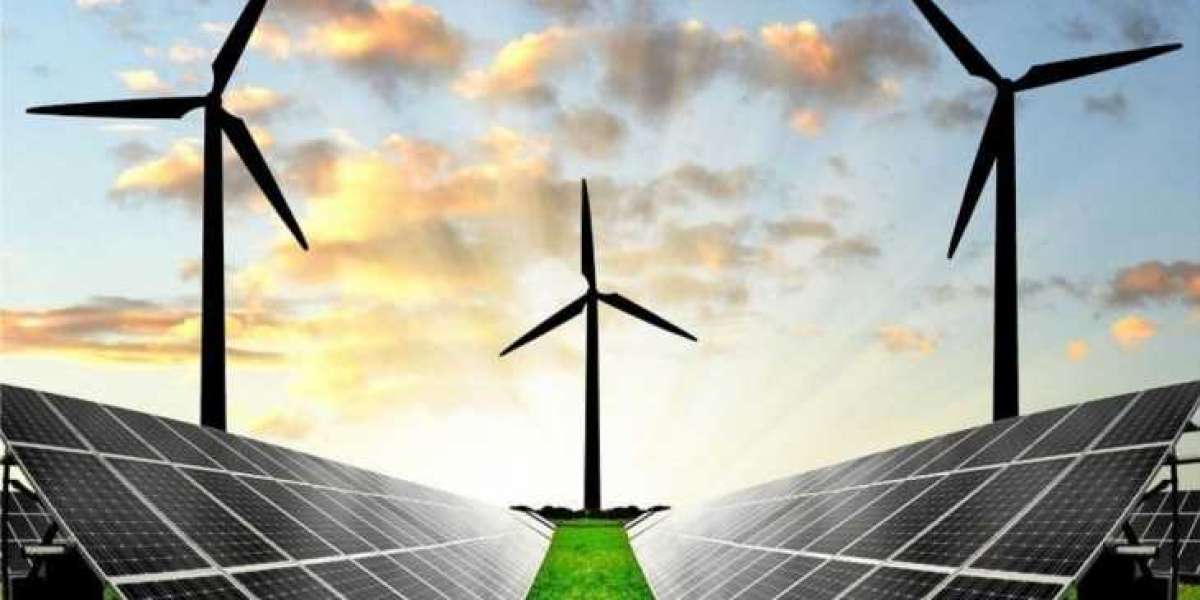Green energy is also a low-cost answer for many sections of the world's energy demands. This direction will only continue to enhance as costs decline, boosting the accessibility of green energy, particularly in developing countries.
There are several instances of green energy in use today, ranging from energy generation to thermal heating in buildings, off-highway vehicles, and transportation. In addition, numerous industries are studying green alternatives, and the following are just a few examples:
1. Building Heating and Cooling
Green energy solutions are employed in various structures, from corporate buildings to private residences. These include solar water heaters, biomass-fueled boilers, direct geothermal heat, and renewable-energy-powered cooling systems.
2. Industrial Methods
Biomass or renewable energy can be used to provide heat for industrial activities. For example, hydrogen is currently a significant source of renewable energy for the cement, iron, steel industries, and chemical industry.
3. Logistics
Sustainable biofuels and renewable power are gaining traction in various industry sectors for transportation. While automotive is a clear example of electrification replacing fossil fuels, other sectors such as aerospace and construction are actively studying electrification.
Is It a Sustainable Alternative to Fossil Fuels?
Green energy has the potential to replace fossil fuels eventually; however, this may need a mix of production methods. For example, geothermal energy is highly successful in areas with easy access to this resource, but wind energy or solar energy may be more suitable for different regions.
However, by combining numerous green energy sources to fulfill our demands and improving the production and development of these resources, there is every reason to hope that fossil fuels might eventually be phased out.

While this is still years away, it is vital to slow climate change, enhance the environment, and transition to a more sustainable future.
Is it economically feasible?
To assess the economic feasibility of green energy, a comparison to fossil fuels is necessary. The reality is that as conveniently accessible fossil fuel supplies deplete, the cost of this sort of energy will climb proportionately.
Simultaneously with the increase in the cost of fossil fuels, the price of greener energy sources is decreasing. Other variables, such as the capacity to generate affordable localized energy solutions like solar farms, also favor green energy. Interest in, investment in, and development of green energy solutions continue to drive down prices as we increase our knowledge and ability to build on previous accomplishments.
As a result, green energy may become economically feasible and desirable.
Which Is The Most Efficient Type?
Green energy efficiency is partly location-dependent since with the right conditions, such as frequent and intense sunshine, it is pretty straightforward to build a rapid and efficient energy solution.
However, it is important to examine an energy source's life cycle to evaluate different energy sources effectively. This involves determining the amount of energy consumed to develop the green energy resource, calculating the amount of energy that can be converted to electricity, and clearing any land required to build the energy solution. Of course, environmental degradation precludes a source from being really 'green,' but a 'Levelised Energy Cost' is created (LEC).
Currently, wind farms are considered the most efficient form of green energy since they require less refining and processing than solar panels. In addition, advances in composites technology and testing have increased the longevity of wind turbines. However, the same can be said about solar panels advancing rapidly.
Additionally, green energy solutions have the advantage of requiring little extra energy expenditure once they are created since they often utilize an easily renewable source of energy, such as wind. Indeed, coal's overall efficiency of useable energy is just 29% of its initial energy value, whereas wind energy returns 1164 percent on its initial energy intake.
How is it Beneficial to the environment?
Green energy has significant environmental advantages since it is generated using natural resources such as sunshine, wind, and water. Moreover, these renewable energy sources, which are constantly replenished, are the polar opposite of the unsustainable, carbon-emitting fossil fuels that have powered humanity for over a century.
Developing energy that emits no carbon dioxide is a significant step toward a more ecologically responsible future. If we can utilize it to satisfy our energy, industrial, and transportation demands, we can significantly lessen our environmental effects.
What is the Difference Between Green Energy, Clean Energy, and Renewable Energy?
As previously stated, there is a distinction between green, clean, and renewable energy. This is somewhat perplexing because these phrases are frequently used interchangeably. Yet, while a resource may have all of these characteristics simultaneously, it can also be renewable but not green or clean (such as with some forms of biomass energy).
Green energy is energy generated by natural processes, such as the sun. Clean energy is energy that does not emit pollutants into the atmosphere, whereas renewable energy is energy that is continually renewed, such as hydropower, wind power, or solar energy.
Renewable energy is sometimes conflated with alternative energy; however, there is still some controversy. For instance, can a hydroelectric dam that diverts streams and affects the surrounding ecology be described as green energy?
On the other hand, wind energy is renewable, green, and clean – since it originates from an ecologically beneficial, self-renewing, and non-polluting source.
Conclusion
Green energy appears to be a part of the world's future, providing a more environmentally friendly alternative to many of today's energy sources. In addition, these replenishable energy sources are beneficial to the environment, contribute to job creation, and appear economically feasible as development continues.
The reality is that fossil fuels must be phased out since they do not provide a long-term answer to our energy demands. Instead, by pursuing a range of green energy alternatives, we can ensure an utterly sustainable future for our energy supply without causing harm to the planet on which we all live.






